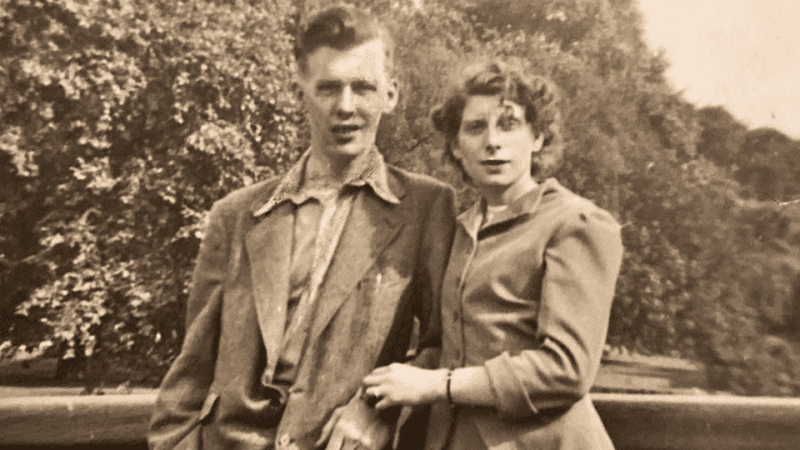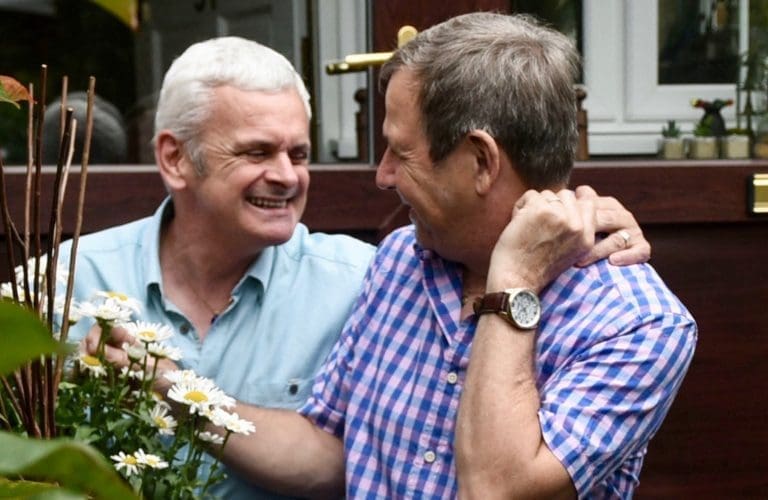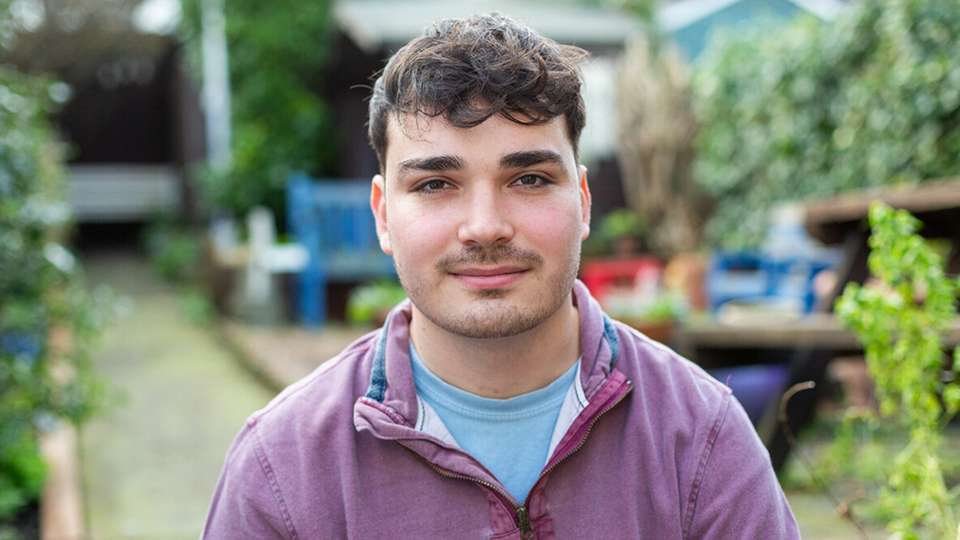
Finding support shouldn’t have to be this hard – Helen’s story
Helen shares her family’s experiences of trying to navigate the fragmented health and social care system after her mum was diagnosed with Alzheimer’s disease.
Falls are common in older people and people with dementia, and can make it difficult for them to live independently. One in three adults over the age of 65, and half of people over 80, will experience at least one fall a year.
People with a cognitive impairment like dementia are at greater risk of falling and sustaining a serious injury. This is linked to some of the symptoms of dementia, such as difficulties with:
Falls may indicate that someone is living with overall physical frailty. This is particularly true for older people, although people with young onset dementia (where symptoms develop before the age of 65) can also become frail.
Most falls only result in minor injury, but sometimes they can cause a more serious injury like a broken bone (fracture). They can lead to a loss of mobility and independence and knock the person’s confidence.
GP: if you have concerns about the person with dementia becoming unsteady and/or falling, their GP is the first port of call. They may recommend some simple tests and checks including:
Falls prevention service: the person’s GP may refer them to the local falls prevention service to investigate the cause of their falls and provide advice on managing the risk, eg by supporting them to improve their postural stability; providing healthy living advice; and improving their overall mobility confidence to reduce their fear of falling.
Physiotherapists and occupational therapists: physiotherapists can assess the person’s falls risk and advise on ways to reduce it, eg through strength and balance training.
Occupational therapists (OTs) work with people to identify daily activities that they find difficult and suggest ways to make them easier, including giving advice on home equipment and adaptations.
The person’s GP can arrange a referral to a physiotherapist or OT, or you can contact social services for advice. Some work within falls prevention services.
Alternatively, you can find a private practitioner via the Royal College of Occupational Therapists or the Chartered Society of Physiotherapy.
Many falls happen at home, so it is important to identify possible hazards. You can request a needs assessment and home assessment to help with this.
Needs assessment: this looks at what help the person with dementia needs to cope with everyday life, eg assistive living products like a walking frame; changes to the home like a walk-in shower; or support from a paid carer.
The assessment is free, but the person may need to pay for any adaptations, equipment or care that are recommended. This is means-tested based on their finances.
Home assessment: this looks specifically at home adaptations and equipment to support daily living. The local council should fund small adaptations costing under £1,000, such as grab rails or movement-activated lighting.
If larger, more expensive changes are recommended, like fitting a stairlift or converting a bathroom to a wet room, the person with dementia may need to pay for them, although they may be entitled to a Disabled Facilities Grant towards the cost.
Our information on making the home safe and comfortable for a person with dementia contains lots of advice on changes you can make at home to reduce the risk of falls.
It is important to be prepared for the possibility of falls, especially if the person with dementia is becoming increasingly frail and immobile.
If a person begins to fall from an upright position, do not attempt to catch them or stop their fall; instead, control their fall by lowering them to the floor.
If the person with dementia falls, it is important to keep calm.
If you are sure they have no injuries and it is safe for them to get up, support them do so slowly and steadily. You may need another person to help.
To get up, the person should:
It is a good idea to book an appointment with their GP to check for any injuries and do some simple health checks.
If the person is injured and/or cannot get up off the floor, ring 999 for an ambulance.
If there is a blanket to hand, cover their legs until help arrives. Keep them comfortable, and if it is possible/safe to do so, try to change their position slightly every 30 minutes to reduce the risk of pressure damage to the skin.
Children or young people are sometimes the first to find a loved one who has fallen, so it is important that they know what to do.
After a fall, it is important to reassess the person’s needs and evaluate if anything more can be done to prevent further falls. Their GP or healthcare professional can help with this.
If you have any questions or concerns relating to dementia, call our free Dementia Helpline on 0800 888 6678 (Monday-Friday 9am-9pm, Saturday and Sunday 9am-5pm), email helpline@dementiauk.org or you can book a virtual appointment with an Admiral Nurse via phone or video call.
Our virtual clinics give you the chance to discuss any questions or concerns with a dementia specialist Admiral Nurse by phone or video call, at a time that suits you.

Helen shares her family’s experiences of trying to navigate the fragmented health and social care system after her mum was diagnosed with Alzheimer’s disease.

Mike Parish, Founder of the LGBTQ+ Dementia Advisory Group, shares his journey caring for husband Tom and overcoming the fear of stigma.

When Elliott’s father was diagnosed with young onset Alzheimer’s disease in his fifties, family life was changed forever.